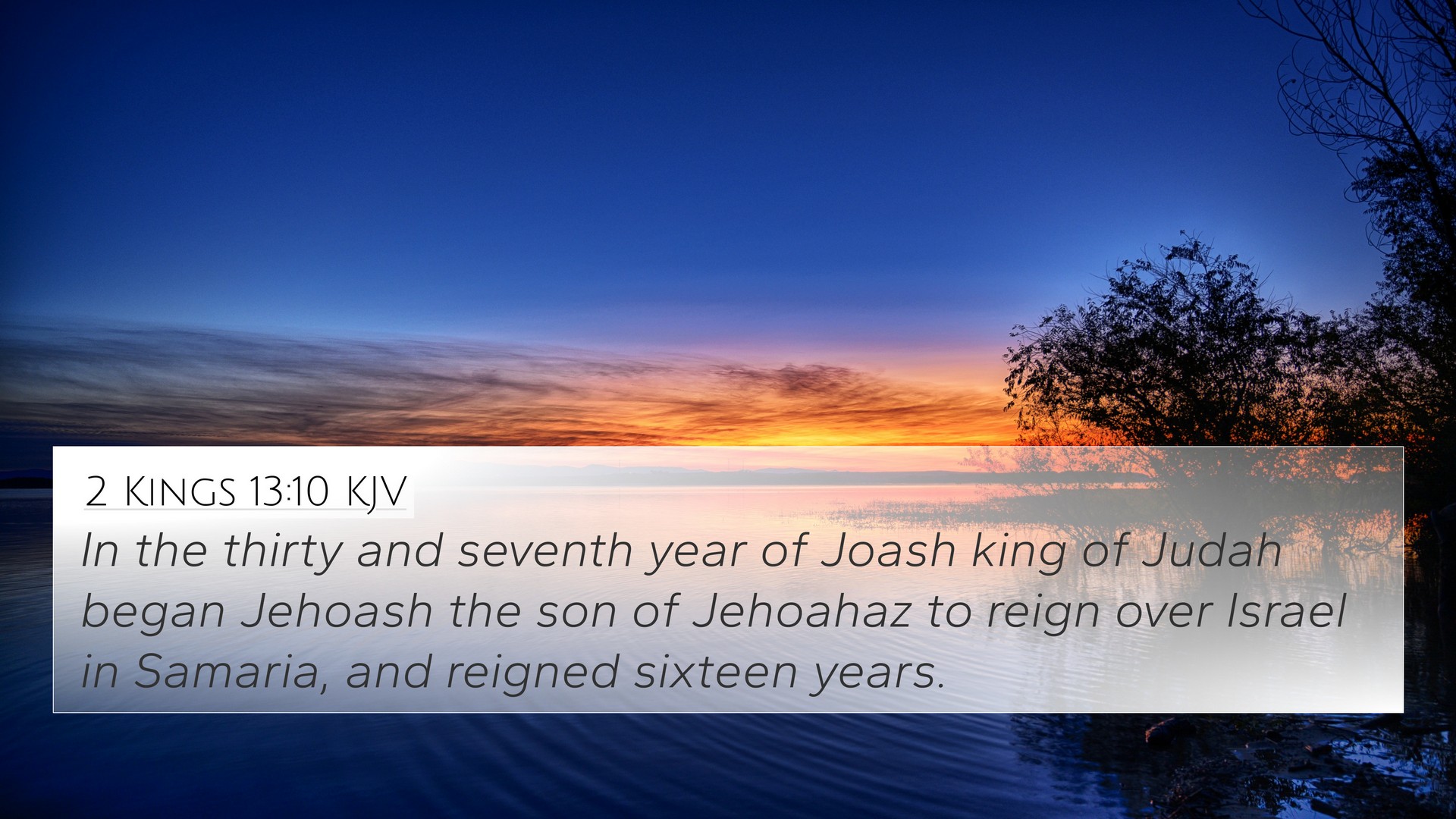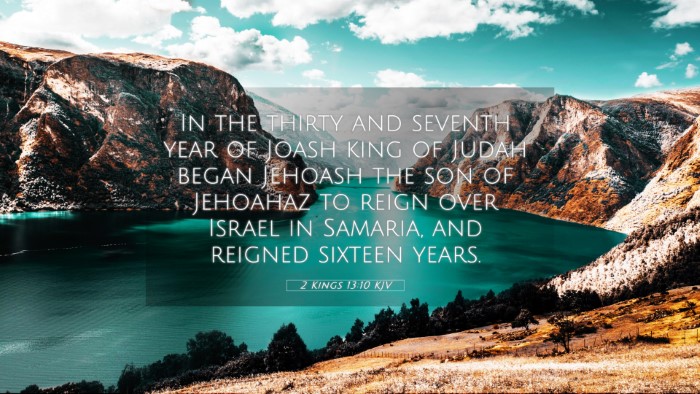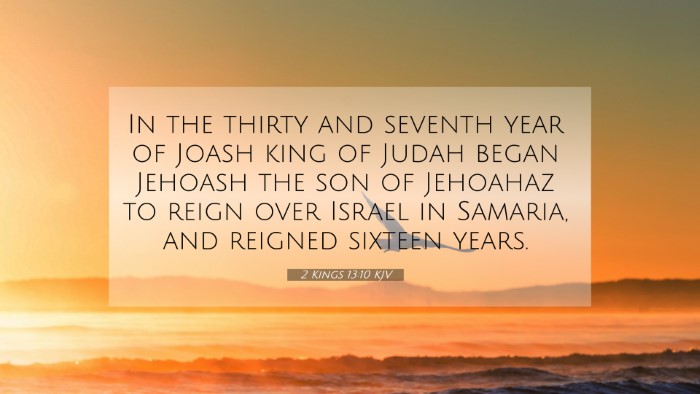Understanding 2 Kings 13:10
In 2 Kings 13:10, we find a significant moment concerning the rule of Jehoash, king of Israel, marked by warfare and prophetic succession. The verse states:
"In the thirty-seventh year of Joash king of Judah, Jehoash the son of Jehoahaz became king over Israel in Samaria, and reigned sixteen years." (2 Kings 13:10 NKJV)
This passage is essential for several reasons, including its historical context, theological implications, and the legacy of the individuals mentioned. Below is a summary of insights derived from notable public domain commentaries.
Historical Context
Albert Barnes explains that this verse is pivotal in the narrative of the kings of Israel and Judah. It highlights the chronology of the reigns and signals the continuing struggles Israel faced, particularly under the influence of foreign powers and internal conflict.
Matthew Henry emphasizes the significance of chronology in biblical history, noting the reign of Jehoash in the broader narrative of Israel's decline and how the political climate influences the spiritual state of the nation.
Thematic Implications
Across several commentaries, the following themes emerge regarding 2 Kings 13:10:
- Leadership and Governance: How the character of a king impacts the spiritual and national identity of Israel.
- Prophecy and Succession: The ongoing prophetic influence in Israel's governance, particularly the legacy of prophetic voices like Elijah and Elisha.
- Continuity in Crisis: The endurance of Israel's faith amidst political upheaval and warfare.
Bible Verse Cross-References
This verse relates to several other scriptures, providing a broader understanding of its significance:
- 2 Kings 12:1: Discusses the reign of Joash, offering context for Jehoash’s ascension.
- 2 Kings 10:30: Discusses God's promise to Jehu, setting a context for the kings that follow.
- Hosea 1:1: Provides prophetic context concerning Israel during the time of Jehoash.
- 2 Chronicles 24:17-18: Sheds light on the spiritual state during Joash’s reign.
- 2 Kings 14:23: Chronicles the subsequent reign and its implications on the trajectory of Israel.
- Amos 1:1: Relates to the conditions in Israel during the time of Jehoash.
- Micah 6:16: Highlights the consequences of leading Israel away from its covenant with God.
Comparative Bible Verse Analysis
This passage invites a deeper exploration of connections between verses regarding leadership in Israel:
- 1 Chronicles 10:13-14: Discusses Saul's tragic downfall, setting a contrast with Jehoash's leadership.
- 2 Samuel 7:12-13: God's covenant with David influences the narratives of subsequent kings.
- Matthew 1:12-16: The ancestral lineage can be traced, providing significant theological insights.
Scriptural Cross-Referencing
Employing tools for Bible cross-referencing can lead to profound insights into passages like 2 Kings 13:10. Understanding the connections between biblical texts is crucial for a comprehensive study.
Using Cross-References in Bible Study
When examining verses like 2 Kings 13:10:
- Identify similarities and context between the reigns.
- Use a bible concordance to locate thematic ties between kings and prophets.
- Engage with a cross-reference Bible study guide to deepen understanding.
Conclusion
In summary, 2 Kings 13:10 encapsulates a critical historical moment that not only contributes to the narrative of Israel's monarchs but also offers a wealth of thematic depth regarding leadership, prophecy, and divine promises. Through careful cross-referencing, one can explore the intricate relationships between biblical texts and gain insight into the broader scriptural narrative.


